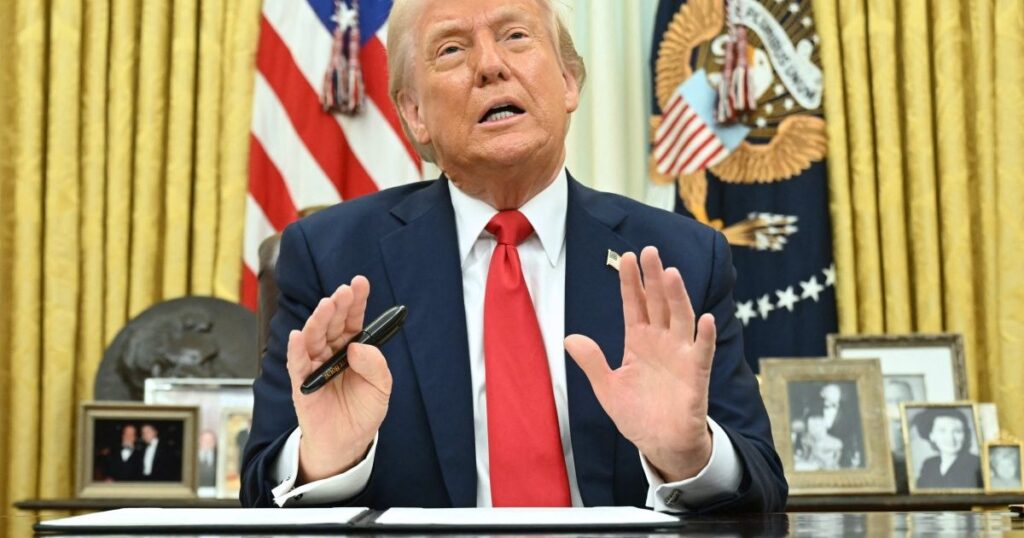
THE condemnation of Nigeria’s import ban on some 25 goods by the United States comes at a time when the biggest economy in the world is also pursuing protectionist policies that it is condemning.
American authorities warn that the policy undermines American exporters and blocks access to one of Africa’s largest consumer markets.
The complaint came as part of a new campaign launched by the Office of the United States Trade Representative, following President Donald Trump’s announcement of new tariffs on almost all imports into the US.
Specifically, the US imposed a 14 per cent tariff on imports from Nigeria. This excludes crude oil.
The USTR says, “These policies create significant trade barriers that lead to lost revenue for US businesses looking to expand in the Nigerian market. Restrictions on items like beef, pork, poultry, fruit juices, medications, and spirits limit US market access and reduce export opportunities.”
The ban on 25 products, a policy introduced by the CBN in 2015, blocks access to foreign exchange for a wide range of imported goods as part of a broader push to promote local production.
While globalisation has favoured the developed countries more, the developing countries have experienced the gradual destruction of their manufacturing bases, with cheaper goods flowing in from different parts of the world and forcing many local manufacturing companies to shut down.
The impact of unbridled globalisation could be seen in the death of Nigeria’s textile industry. With the influx of cheaper imported textile materials into the market, most of Nigeria’s textile companies folded up, while the economies of countries like China continue to blossom after the destruction of the local manufacturing bases of countries like Nigeria.
So, while the US is condemning Nigeria’s stoppage of importation of goods it could source locally, the US has been busy tariffing imports to protect its local industries.
Indeed, the US has upended the global economic order and has ushered in the return of protectionism.
So, for countries like Nigeria, the path to economic rejuvenation is a level of protectionism that would broaden the country’s manufacturing base, create much-needed jobs, and set the country on the path to self-reliance.
Recently, the UK parliament took the unusual step of passing a bill to repossess British Steel. It was about to be shut down by a Chinese investor, Jingye Group. The Chinese investor wanted to close two massive blast furnaces at the company’s Scunthorpe plant in the north of England that are key in the steelmaking process.
So, at a time of global economic uncertainty, countries like Nigeria should endeavour to go back to the basics by rejuvenating the manufacturing base that made the economy strong in the past.
The manufacturing sector in most countries is a huge employer of labour, but China, more than any other country in the world, has taken advantage of globalisation, turning itself into a factory for the world and flooding the global market with cheap goods while creating jobs and wealth for its huge population.
Nigeria has not taken advantage of its huge population, and the poverty level in the country is growing exponentially.
Nigeria is weak economically because it has not been producing most of the things it consumes, and has turned itself practically into a consumer country.
Therefore, Nigeria must give more to the world than it takes.
So, there must be conscious efforts for Nigeria to revive sectors like the textile and garment sector to drive economic growth and maximise the advantages in the agricultural sector.
Nigeria spends $4 billion annually on garment imports.
The Federal Government should implement policies to revive the textile sector, among others. It should not be bothered by America’s hypocritical complaints.


